I’ll save you the immediate proclamations of my privilege. The rise of such performative proclamations have not made a significant change or moved society along the road towards equity.
What else can I do besides express my own personal outrage about persistent racism, sexism, and other social injustices that are an affront to the principles of universal humanity, democracy, and fairness? This time these questions are inspired by the recent killing of an unarmed black male, George Floyd, by Minneapolis police. While this may appear to be a single act, it is part of a long historical racist system (see my look at more recent data here, others analysis here, and some of this history here and here). My thoughts below are very much inspired by a recent reading of Dr. Ibram X. Kendi’s book, How to be an Antiracist. I recommend it and his other work. What I’ve written below is not a substantially original statement. Others have made similar arguments for a long time. I write this to make visible my own process in hopes that it will make me and others think even harder and actually act. I also hope it will inspire reflection in some others in my network as it has me. I certainly invite comments.
If I want to do more than proclaim my anti-racism what do I do?
While actively educating ourselves throughout our lives is important, that alone will not end racism. The end of racism means the implementation of policies and laws that are antiracist – policies that generate racial equity (again, read Dr. Kendi and others). The end of racism does not come when enough of us proclaim we are not racist on social media. Policies and laws are drafted, voted on, and enforced by people with power. Two primary sources of such power come from being elected to a political office or one’s power in controlling financial resources (CEO, Executive Director, etc.). No matter what I post on social media, my individual voice is not enough to make a significant change toward an antiracist society. So…
STEP 1: If I am serious about working toward the decline of racism, I need to be part of an organization of others pursuing similar goals – policy change for racial equity.
Entrenched power resists political change. Political change comes from political movements. Organized advocacy and disruptive protest can and certainly have influenced electoral politics and powerful organizations throughout US history. These organized processes can move laws and policies toward a more racially equitable society. Legal challenges can also alter laws toward a more racially equal society. Organizations are required for this advocacy and protest to occur. Alone, my letter to a Senator, my vote for a governor, my snarky Tweet targeting the president, or my outrage, does nothing. While it may clear my conscience, I shouldn’t pretend it is actually contributing to the generation of more racially equitable policies and laws. I could also run for a political office but that’s a much larger radical life change than I am currently NOT prepared for.
I will have to do work to figure out which organization(s) to join. Honestly, inertia and a lack of urgency due to my whiteness makes this hard. Fortunately, I can do hard things. You can too. Don’t ask me what the right organizations are for you to become involved in and donate to. Do the work. Figure it out. It obviously depends on where you live. Start from where you are now. Grow. As Maya Angelou said, “Do the best you can until you know better. Then when you know better, do better.”
Just to be clear, these organizations already exist and already have people working there who have dedicated their lives and skills to social change. They do not need a “white savior.”
What does it look like to “join” an organization? That may mean I become a member, go to meetings, volunteer my time, fundraise, and/or recruit more members. Check out the organizations’ web pages. Read their mission statements and other information (like “How to get involved”). Send an email asking if there is a way you can be involved and indicate a willingness to follow their experience and leadership. Follow up on that email. If an organization is not taking or seeking volunteers or members, don’t give up, look for another one. What skills do I have that they can use? What am I willing to learn how to do? How much time can I regularly give? I need to be open to what they need rather than what I want out of it. Some organizing work is boring, some is unrecognized, some is effective and some fails as part of organizational learning. I can do this and give attention to other issues I am concerned about as well… climate justice, etc.
STEP 2: Also, donate to organizations. It is not an either/or.
If I have financial resources, organizations need them to pay staff and rent office space, etc. It takes staff and resources to organize and run campaigns of all sorts. If I want a racially equitable society, I need to donate what I can to organizations doing good work. It is easier for me to think of organizations to donate to than to join.
STEP 3: At the local, state, and national-level, campaign for, donate to, and vote for candidates with explicit antiracist platforms.
Not those candidates that are less racist or lack explicit racism, those that are explicitly anti-racist.
Now, behind the scenes, I need to continue to listen and learn. I need to be reflective and think critically. I need to be open to criticism. I need to not let myself off the hook for this type of work because I have distinguished myself from racists public figures like Trump (and here) or “Karen.” I do need to read and educate myself more. You can easily find hundreds of books on racism. Don’t be lazy. Try this.
What’s wrong with proclamations that “I am not a racist”?
I’m a white male. There is a risk that if I believe that I am not racist than I will not pay attention to and work to end the institutional and other racism that still exists. I may also feel that by not being overtly racist, I will feel like I have done all I need to do. “Well, I’m not a member of a white supremacist organization.” I benefit from a system of white privilege (and male, class, etc. privilege). I can opt-in and out of the antiracist movement as I chose. Others are subject to the burdens of racism (individual or systemic) every day. I can’t let myself off the hook because I teach a college course once a year or so on race. The point is, I benefit from a racist system whether I am overtly racist or not.
What’s wrong with proclamations such as “I am outraged by racism”?
Quite simply, as Katy Anthony writes, “telegraphing our disgust with racism encourages white people to see ‘talking about racism’ as on par with ‘engaging in anti-racism,’ and it is not.” Proclaiming disgust is not action. Proclaim disgust AND take action. Individual proclamations alone do not shift the leverage points of power toward antiracism. Such proclamations alone will do little to change structures and systems of racism. Don’t get me wrong, as a sociologist, I know the power of socialization and negative sanctions (like public shaming).
Being a part of the existing organized collective effort to make and enforce policies and laws that deliver racial equity, that is what I (and plenty of others) believe (and what history makes clear) will change our society. That is being antiracist.
FOLLOW-UP: Sept. 4, 2020 – Data collected nearly six months after the death of George Floyd at the hands of police, white Americans are the least likely to be engaged in taking some sort of action to better understand racial issues. Click on the image below to go to the full story.
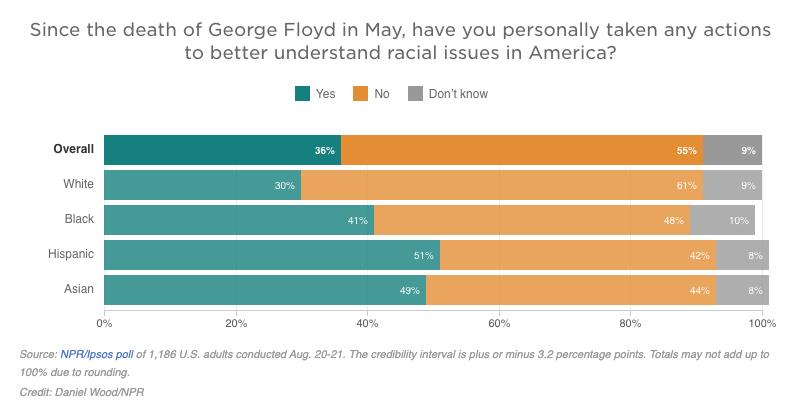
…
So, who am I? I am a white, cis-male, tenured sociology professor at a private liberal arts college north of Chicago, Lake Forest College. I teach a class on racism and ethnic relations. As a sociologist, I know that race is socially constructed (and here) but still has powerful social consequences. I teach classes and conduct research on climate justice, globalization, and protest movements. I blog about sociology at SociologyToolbox.com and am working on a site about the sociology of climate change at SociologyofClimateChange.com This web site generates no income and has no affiliate links.
…
Fine, here are some resources…


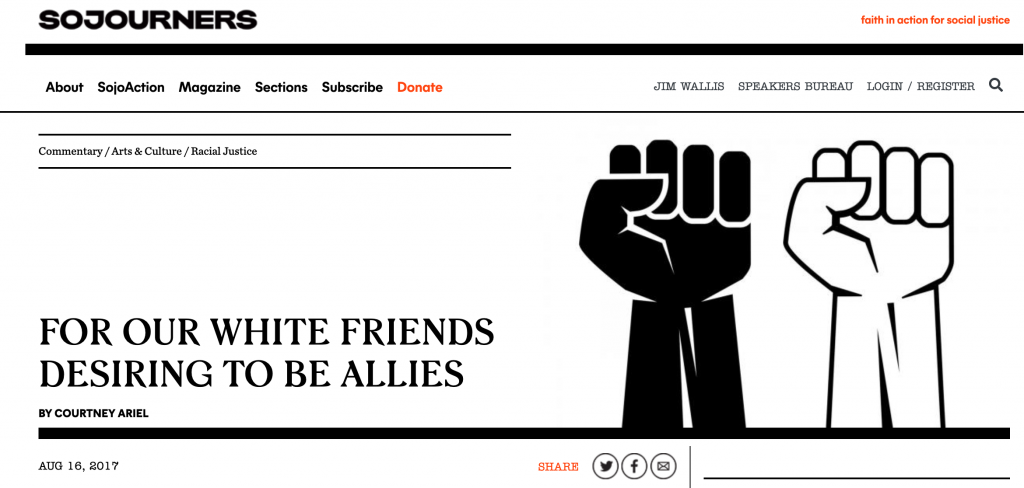
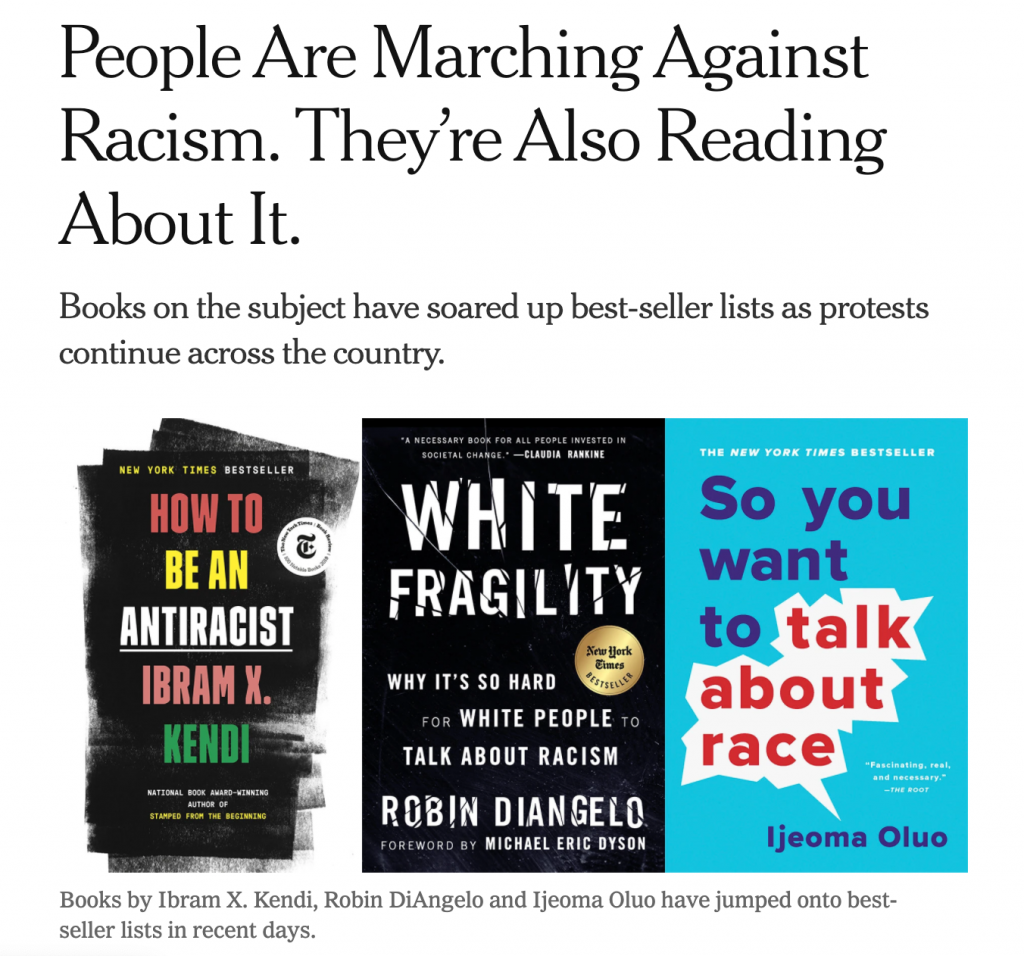

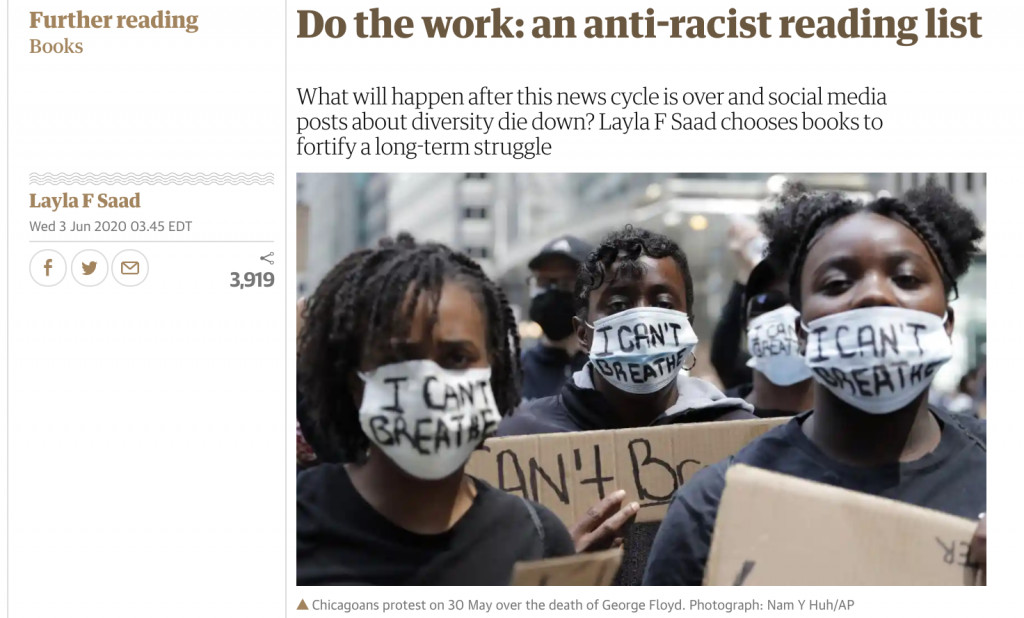
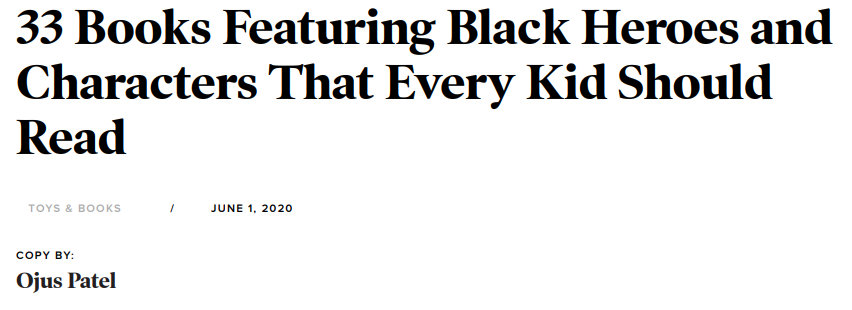
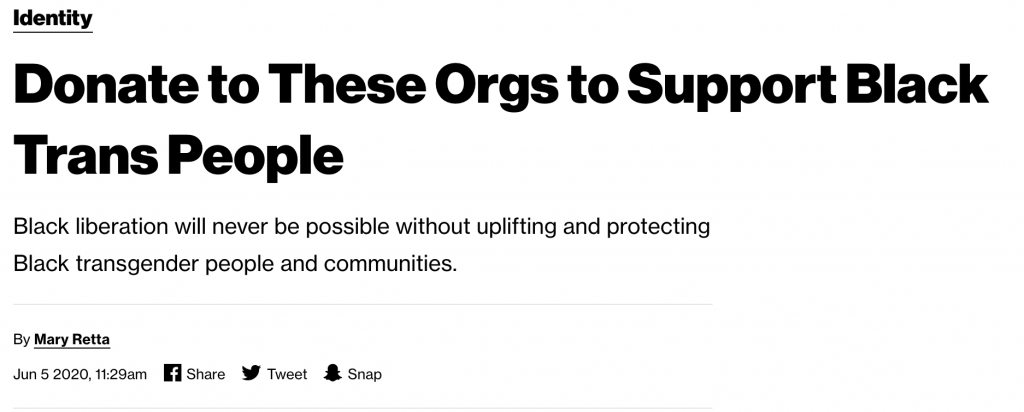

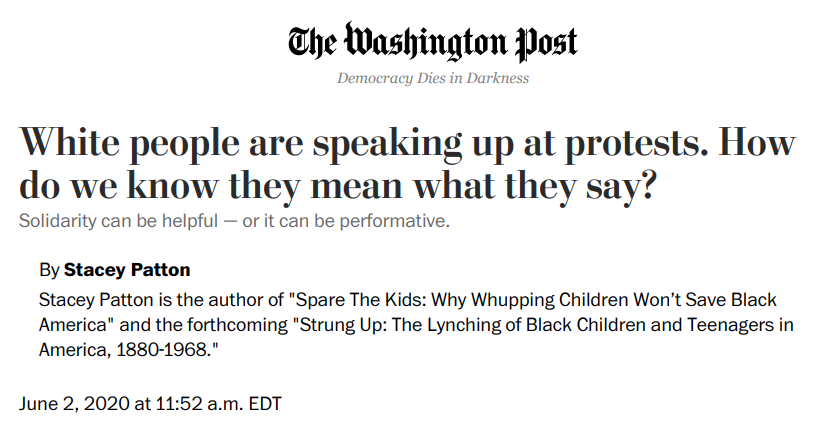
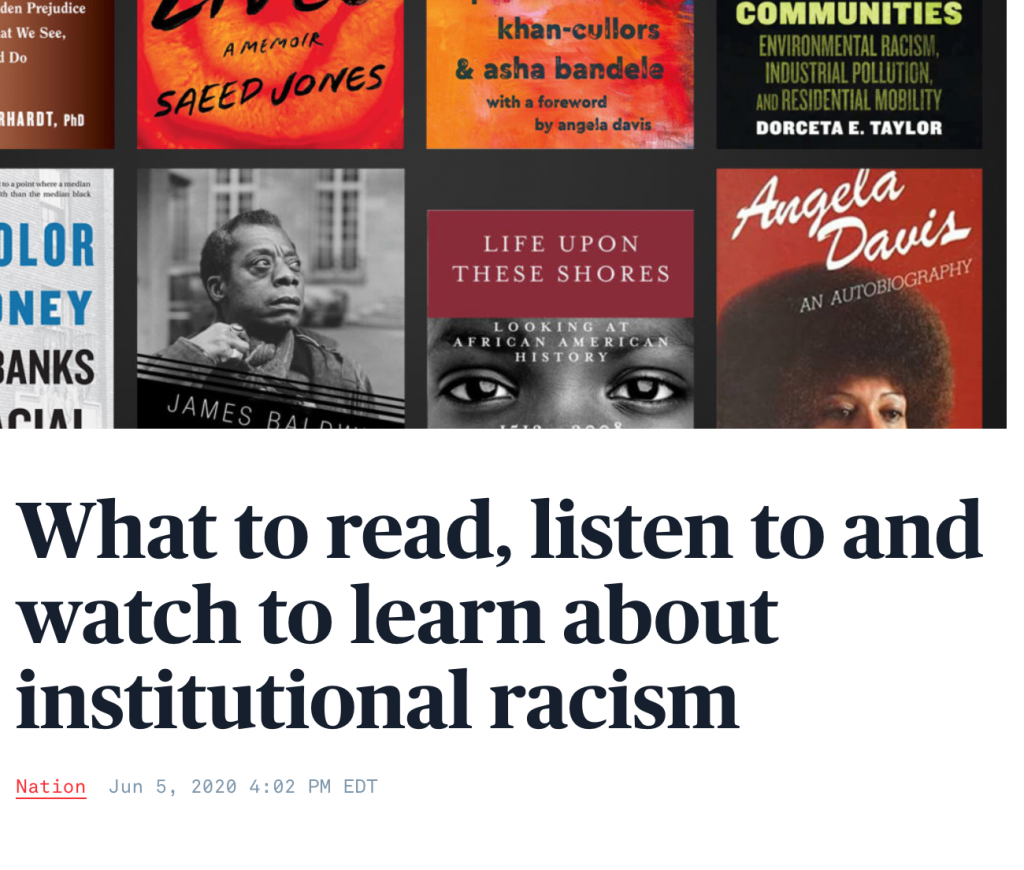
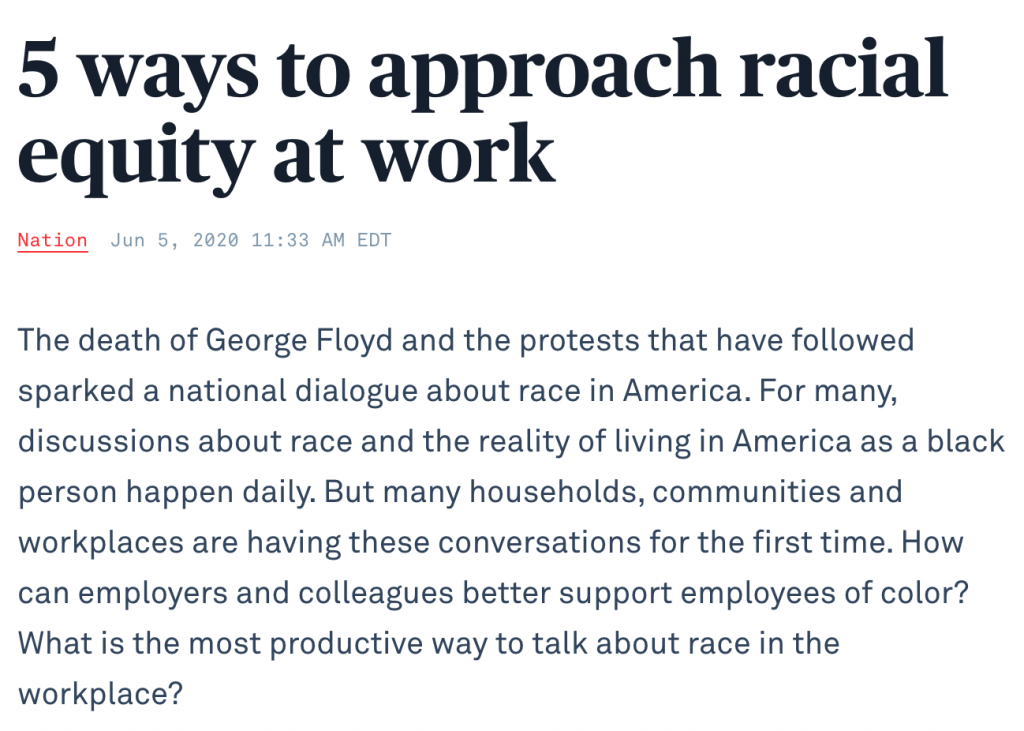


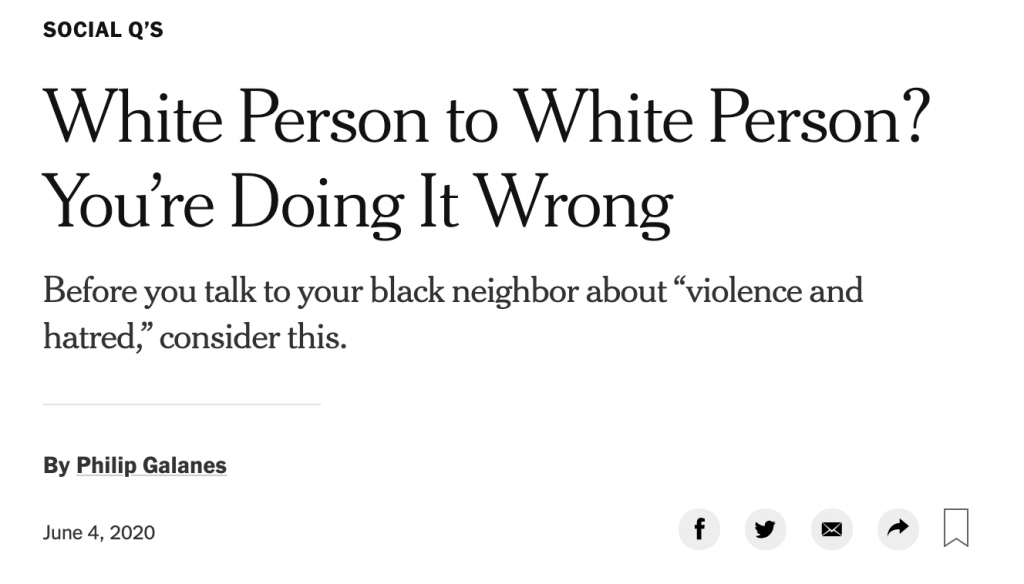
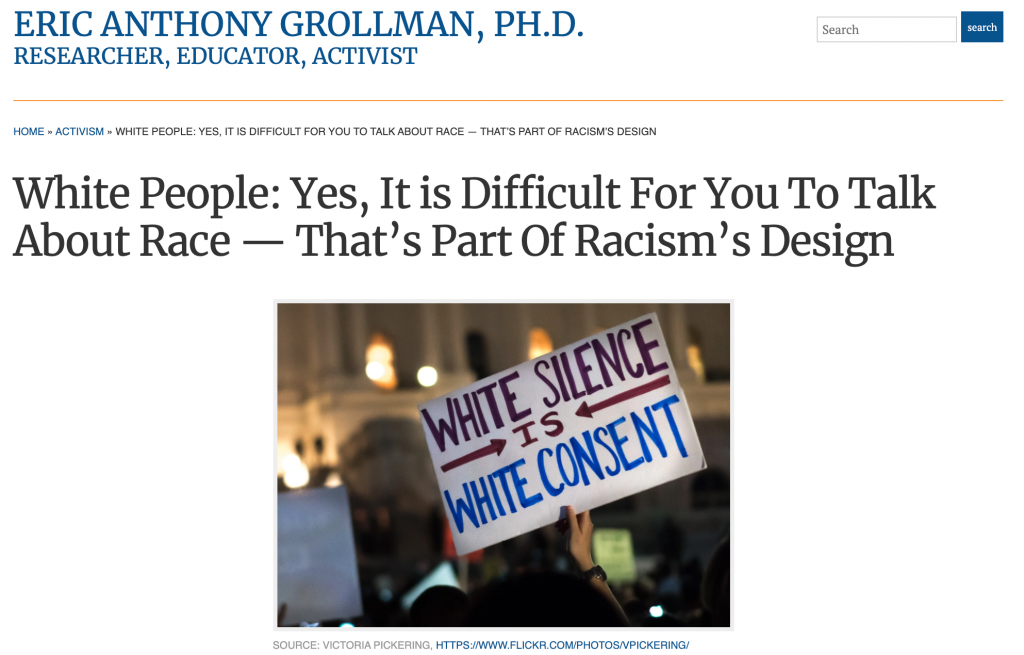







Comments 5
Pete Agrawal — May 31, 2020
Love the simple way you have described the measures we all can take to support the fight for better tomorrow. Continue to inspire and do good my friend.
cat4you — June 10, 2020
Very nice and simple way . Thanks
Mico — June 20, 2020
A whole page about racism that said absolutely nothing!!! There was not one instance of racism described or identified. It's just a word to rile people up! You're lucky you're tenured, that's the only way you could keep your job writing foolishness like this!!
Todd Beer — June 20, 2020
Read numerous other posts from the same blog that cover racism:
https://thesocietypages.org/toolbox/police-killing-of-blacks/ https://thesocietypages.org/toolbox/blacks_commit_more_crimes_1/ https://thesocietypages.org/toolbox/implicit-bias/ https://thesocietypages.org/toolbox/race-of-police-departments/ https://thesocietypages.org/toolbox/racial-profiling-open-carry/ https://thesocietypages.org/toolbox/mass-incarceration/ https://thesocietypages.org/toolbox/racial-profiling-can-black-people-afford/ https://thesocietypages.org/toolbox/race-and-the-war-on-drugs/